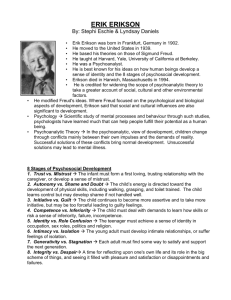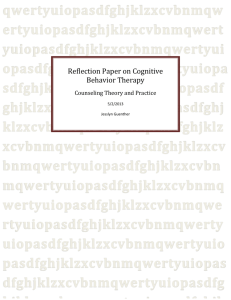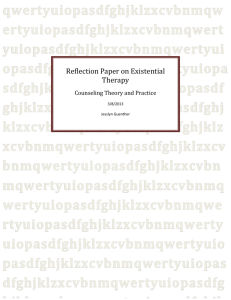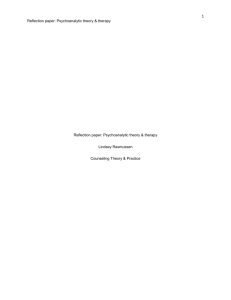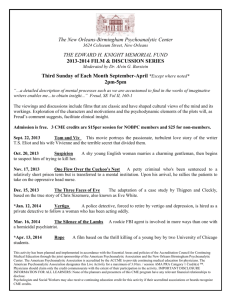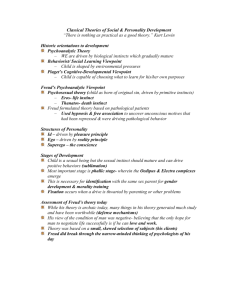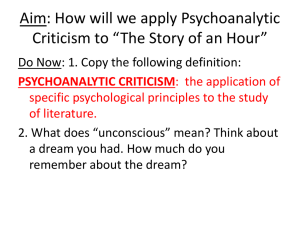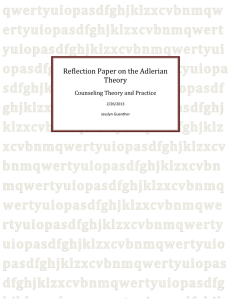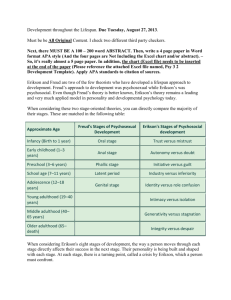Psychoanalytic Theory Reflection Paper: Freud vs. Erikson
advertisement
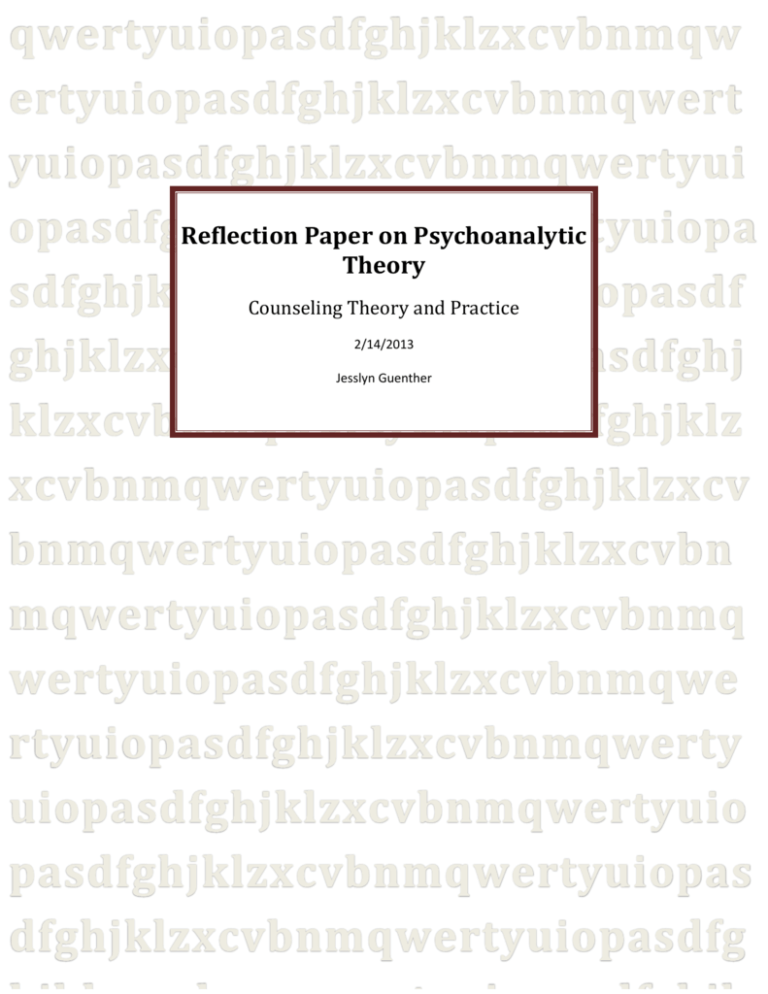
Reflection Paper on Psychoanalytic Theory Counseling Theory and Practice 2/14/2013 Jesslyn Guenther Jesslyn Guenther Reflection Paper on Psychoanalytic Theory Counseling Theory and Practice 2/14/13 Reflection Paper on Psychoanalytic Theory When it comes to Psychoanalytic Theory, I would probably tend to agree more with Erik Erikson’s psychosocial theory rather than Sigmund Freud’s psychosexual theory. I do believe that the oral stage, birth to one year does have a lot to do with the baby’s mouth because this is where they receive satisfaction through eating from sucking from a bottle and being calmed by sucking on a pacifier. They also put their fingers in their mouth a lot and anything they can pick up usually goes directly in their mouth. This isn’t the only part of a baby’s needs, though. Babies need to be touched, cuddled, looked at and talked too. When they cry, how fast a caretaker responds gives a baby the feeling of trust, therefore the first year is more than just being about the oral stage. In the second stage, both Freud and Erikson think personal control and a sense of independence takes place through the process of toilet training. I don’t agree with Freud’s theory about if the toilet training is traumatic, the child will become a weak person and if the toilet training goes well, the child will become a strong person. In the third stage, I agree that children become more aware of their bodies, but I don’t agree that children become sexually attracted to the parent of the opposite sex as Freud Jesslyn Guenther Reflection Paper on Psychoanalytic Theory Counseling Theory and Practice 2/14/13 would say. I know of children who have said when they grow up they want to marry their mom or their dad but it had nothing to do with physical sexual attraction. I agree with Erik Erikson, that children at this third stage begin to assert their power through play and other social interaction. When I have watched children play at this age, I have noticed that they start to split up into leaders and followers. I believe in Erikson’s stage four theory of industry vs. inferiority, where children begin to develop a sense of pride in their accomplishments and abilities and that it is very important to get encouragement from parents and teachers to develop a feeling of competence. At stage 5, Freud believes that the child should detach from the parents and come to terms with unresolved issues of early childhood. The focus is on the genitals and forming love relationships and acceptance of adult responsibilities. This stage goes from puberty to death. That seems like an awful long time for one stage. People do a lot of changing from puberty to death. Freud believes that the kind of person you will be for the rest of your life occurs in the first five years of life. Erikson has a total of eight stages because he believes that you learn and change throughout your entire life through your social experiences. Although I am more prone to believe in Erikson’s theory, that our social experiences throughout our life shapes who we are, I also agree that it is very important to be well nurtured your first five years of life. I don’t agree that these first five years totally make Jesslyn Guenther Reflection Paper on Psychoanalytic Theory Counseling Theory and Practice 2/14/13 you who you are today, because it is such a small part of your life, but they have a lot to do with it. I think a person’s social experiences throughout their life really help to form their personality. The only reason I can see sexual impulses becoming important in forming someone’s personality is if they are having a problem with their sexuality and not being accepted for who they are. I have learned about myself as a professional that I will be enquiring about my client’s social experiences and how they interact and are treated by others. If they are having a problem with their sexuality, I will ask them how they feel about this and how they feel about how others treat them because of their sexual preference. I would share my reflections with my peers and my supervisor, and use what I have learned in my everyday life when encountering different people and instead of making a quick assumption about someone, I will think of what they might have gone through or, are now going through in their life.
